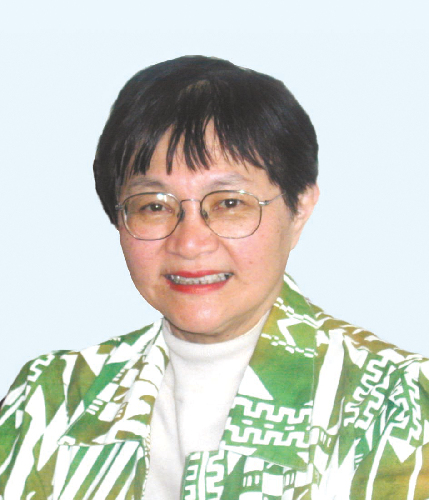|

It can be rare to find an Asian face, let alone an Asian woman's face, in Africa's political arenas. The 71-year-old Fay King Chung is an exception. As the first female governmental minister in Zimbabwe of Chinese descent, Chung spent 14 years working in the government of the Southern African country, with a particular focus on improving education. While her job posts have changed over the years, her focus has remained unwavering. Her dedication to education is a continuation of her family's hundred-year-long history on the African continent.
Born Chinese in Africa
Fay King Chung was born into a business family. In the 1890s, her grandfather was a student and follower of Sun Yat-sen, the renowned Chinese revolutionary who fought against imperial forces in China.
Persecuted by the government for supporting Sun, Chung's grandfather fled the country with many other young men in his village. He was 17 at that time. The men landed in Mozambique first and walked inland following the railway, finally settling in Zimbabwe, known then as Rhodesia under British colonial rule.
The 14 men were the first group of Chinese to arrive in Rhodesia. They were accepted as legal citizens by the local government, which allowed them to bring over their wives and children. But any other Chinese immigrants who followed after were considered illegals. As the result, the Chinese later became a very small group of 200 people in the country. It was isolation, in effect.
"The colonist regime had mixed feelings toward them," explains Chung. "In some ways they were allowed to have some privileges, but sometimes they were treated rudely."
As the minority group in a colonial society, the group could have a very tough life. Most of the Chinese were from farming families before they came to the country, and were very keen to have farms. But Rhodesian land was divided into white areas and black areas. Chinese were prohibited from buying either.
Medical care was also a problem. When Chung's uncle was hurt in an accident, he was rushed to a hospital by ambulance, but was refused entry by hospital staff because he wasn't white. Chinese immigrants were also not allowed to matriculate at white schools or black schools. Chung's grandfather begged every high school in his town to take his daughter as student, but finally she did not receive secondary education. Later, Chung was the first member of her family to attend high school.
Her family's stories and experiences instilled in Chung a belief that education was the only way to improve her fate. With the support of her family, Chung graduated from a university, later got a postgraduate Certificate in Education, and an M.Phil. in English Literature at the Britain-based University of Leeds followed.
Vital work
After graduating from the university, Chung volunteered to teach in a night school that acted as a primary training school for workers near where she lived. Some of the students were illiterate, and all were black.
According to Chung, although the Chinese had their problems in Africa, the situation facing black Africans was far worse. Blacks could only have lean land and could not learn industrial skills, and educational opportunities were rare. Before Zimbabwe's independence in 1980, there were two education systems: one for blacks and one for whites. For blacks, the teaching was rudimentary at best; the colonial government believed that educated blacks posed a threat to its rule.
At the night school, Chung increasingly felt the power of education changing the fate of those around her. In the early 1970s she became a lecturer at the University of Zambia.
|